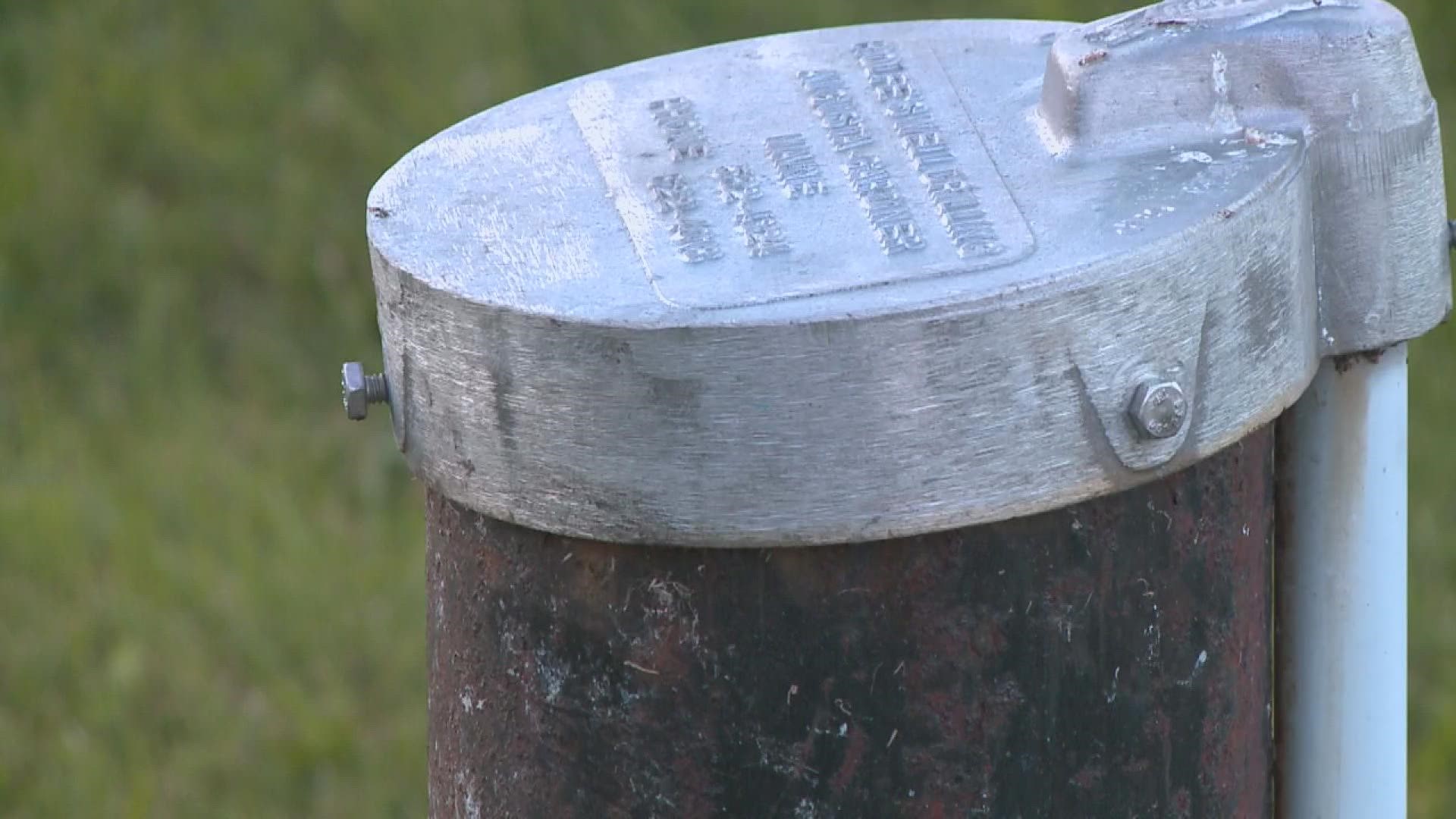FAIRFIELD, Maine — A federal assessment of one of Maine's top hot spots for PFAS contamination is in the early stages.
The Agency for Toxic Substances and Disease Registry is evaluating the public health effects of toxic compounds in Fairfield.
The source for the contamination is wastewater by-products spread on farmland that leached into the water supply for decades.
It's a nightmare Ashley and Troy Reny can't wake up from.
"We did ingest something poisonous, so down the road, we could have problems," Ashley said.
In November of 2020, just months after purchasing their "dream home" the couple discovered their drinking water was literally poison — testing more than 1,200 times Maine's current interim drinking water standards for PFAS chemicals.
The source of the high levels of contamination in her well, along with her neighbors on Howe Road was groundwater run-off from a nearby dairy farm.
Leftover wastewater sludge, laced with PFAS, had been spread on the fields as fertilizer for years. The compounds have been linked in studies to kidney and testicular cancer, increased cholesterol, and reproductive complications.
"The unknown is the hardest part, not knowing if you will be sick later on," Ashley explained.
More than 18 months ago, Ashley asked the CDC's sister agency, the Agency For Toxic Substances and Disease Registry, to assess the public health danger from the contamination.
"We evaluate that data and determine if we think that amount of chemicals that people are exposed to, in this case, PFAS," New England Regional Director for ATSDR Tarah Somers explained.
Somers spoke to town councilors last month. She said the agency will evaluate PFAS concentrations in water, soil, and local food sources, such as deer and fish.
Officials also met with nearly two dozen people, including the Reny's, to identify exposures and determine how that impact public health. Town manager Michelle Flewelling welcomed the assessment in a community where more than 100 private wells were found to have high levels of PFAS.
"I think it could be great information for anybody else across Maine, the country, and the world, depending on how bad the exposure level is," Flewelling added.
The report could take up to two years to complete and future visits to Fairfield.
"Knowing that it is going to take a while and we are stuck here, it's stressful," Troy added.
For more information on the State of Maine's investigation into PFAS in Fairfield go here.

